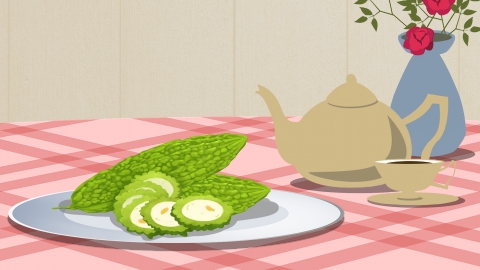Is it good to eat bitter gourd in spring?
In general, whether it is beneficial to eat bitter melon in spring depends on an individual's constitution and health condition. If discomfort occurs, it is advisable to adjust the diet promptly or consult a healthcare professional. The detailed analysis is as follows:

For individuals with a "hot" constitution who often experience symptoms of internal heat ("fire excess") in spring—such as dry mouth, sore throat, and constipation—and who have normal digestive function, consuming moderate amounts of bitter melon is generally beneficial. Bitter melon has a cooling nature and can help alleviate internal heat. Its rich content of vitamins and dietary fiber also provides essential nutrients and promotes intestinal motility, making it suitable for such individuals to consume during spring to regulate their physical condition and relieve discomfort.
For individuals with a "cold" constitution who tend to feel cold easily, have cold hands and feet in spring, or suffer from spleen and stomach deficiency-cold with tendencies toward diarrhea, eating bitter melon may not be suitable. The cooling nature of bitter melon may exacerbate internal coldness, potentially leading to abdominal pain and diarrhea. It may also impair spleen and stomach function, making the body more susceptible to the cold effects of spring weather. Such individuals should minimize or avoid consuming bitter melon.
When eating bitter melon in spring, individuals should adjust the amount based on their personal tolerance and avoid consuming large quantities at once. During cooking, pairing it with warming ingredients such as ginger or garlic can help neutralize some of its cooling properties. If gastrointestinal discomfort occurs after consumption, intake should be stopped immediately. Individuals with specific health conditions, such as chronic diseases, should pay close attention to their body's reactions before consuming bitter melon to ensure it does not negatively affect their health.








